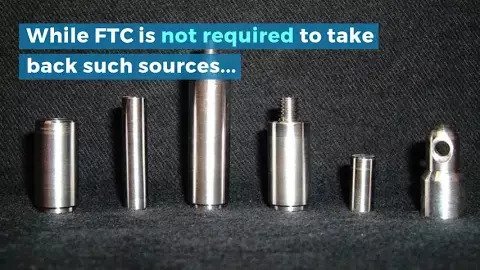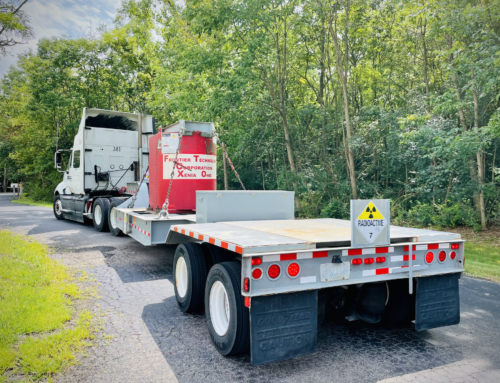
This is why we offer free disposal services to all our customers: any depleted californium-252 neutron source fabricated in our facility can be returned to us at any time. Customers need only pay for shipping. Learn more about our disposal procedure, policies, and the benefits of responsible neutron source return.
Neutron Source Disposal Procedures
Most of our customers return their depleted Cf-252 containers when they receive a new shipment of the substance. Although we are not required by any regulatory body to take back these containers, as a
manufacturer of radioactive materials, we believe we have a personal responsibility to provide safe disposal. We do not want to offer Cf-252 sources without also ensuring our customers have an easy and secure way to dispose of them. Our disposal procedure complies with all applicable regulations and internal policies.
"*" indicates required fields
Depleted Source Return Policy
We cannot take responsibility for depleted radioactive sources or shipping containers not made by us. These policies ensure the safety of all parties that come into contact with the returned source during shipment. Frontier accepts the return of depleted sources under these conditions:
- Returned sources must be made by Frontier Technology Corporation. Sources from other manufacturers will be returned to the customer, at their expense.
- The customer needs to submit a request for the return and have written acceptance prior to shipping the return.
- The returned source must be suitable for a common carrier to ship.
- The returned source should be radiologically clean, meaning it was not used in a nuclear reactor or another environment that may have caused significant activation of the capsule.
- The return should be shipped in a Type A shipping container, preferably one made by Frontier. Containers by other manufacturers will be returned to the customer at their expense. Frontier can provide adequate shipping containers at no cost, but the customer will be responsible for all shipping fees.
- The customer is responsible for paying the shipping costs, as well as any necessary customs clearance fees and forwarding fees. Frontier will bill any custom broker fees to the customer.
Benefits of Returning Depleted Neutron Sources

Depending on our customers’ preferences, our Cf-252 sources can come in a variety of double-encapsulated chambers. These capsules can be made of Zircaloy-2, 304L stainless steel, platinum, or other alloys. We use advanced TIG welding and sealing processes with tolerances of +/-10%, and each container is custom-built within certain size requirements.
We take the same care in disposing of used sources, so that trace radioactive elements do not contaminate the environment or harm people. Our operations policies follow strict industry regulations set by the Nuclear Regulatory Commission, ASTM, ANSI, and ISO 2919. Frontier is an IAEA compliant manufacturer of Type A certified shipping containers, and we ship to over 200 countries.
Responsible Neutron Source Returns by Frontier
Frontier Technology Corporation (FTC) is a global leader in manufacturing californium-252. We’re also a foremost expert on shipping radioactive materials, including all associated logistics. Please contact us to see how we can assist you with disposing of your FTC neutron source. If you’re ready to start the process, review our depleted source return policy and fill out the return authorization form.
About Frontier Technology Corporation
Frontier Technology Corporation (FTC) is the world leader in californium-252 neutron source manufacturing and design, and is the foremost expert in logistics and shipping of radioactive material. Founded in 1984 by Treva Janzow and the late Edward Janzow, Frontier Technology is located in Xenia, Ohio. Frontier Technology has over 40 years industry experience in providing the highest-quality neutron sources, PINS sources, nuclear start-up rods, TYPE-A shipping containers, WEP shielding, and antimony-beryllium pellets.
Type-A Neutron Shipping Containers
Frontier designs and fabricates “Type-A” shipping packages of various sizes, shielding, capacities, and configurations for use, rental, or purchase by our customers. All packages are designed and constructed in-house to ensure that the highest quality standards are met.
Type-A Neutron ContainersCalifornium (Cf-252)
As a strong neutron emitter, this isotope is a hazardous material to handle, and is rarely found in nature, due to its very short half-life.
A Complete Guide to CaliforniumGlossary of Californium Terms
To help you better understand our sources and what we do, we have compiled the following glossary to clarify the terms related to californium-252, neutron sources, and neutron radiation, including resources for further exploration into each term.
Californium Glossary of Terms